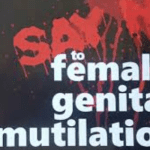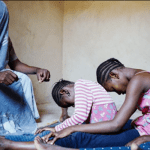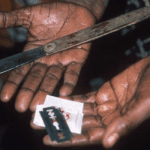Female genital mutilation is a form of gender based violence deeply rooted in traditional understanding of purity and chastity but which causes irreparable pain and problems for affected women and girls.
To stop the menace, activists took the campaign to Ashogbon community within the Bariga area of Lagos, a locality said to record high rates of the practice.
Female genital mutilation involves the partial or total removal of the external female genitals for non medical reasons
The health risks associated with FGM include Uncontrollable bleeding, urination problems, Infection Painful sex, High risk pregnancy for mother and child, Fertility and mental issues.
According to the united nations, 200 million women and girls are cut every year.
In Nigeria 20 million females have undergone the procedure.
This makes Nigeria the country with the third highest cases in the world.
The global body and its partners visited Ashogbon community in Bariga asking residents to stop the dangerous practice.
The walk also seeks to raise awareness on the laws that deal with FGM.
Under the violence against persons act(prohibition) act 2015, perpetrators are liable to a four year jail term or a 200,000 naira fine.
The Lagos State government says measures are in place to punish offenders and support survivors so as to eradicate the menace.














